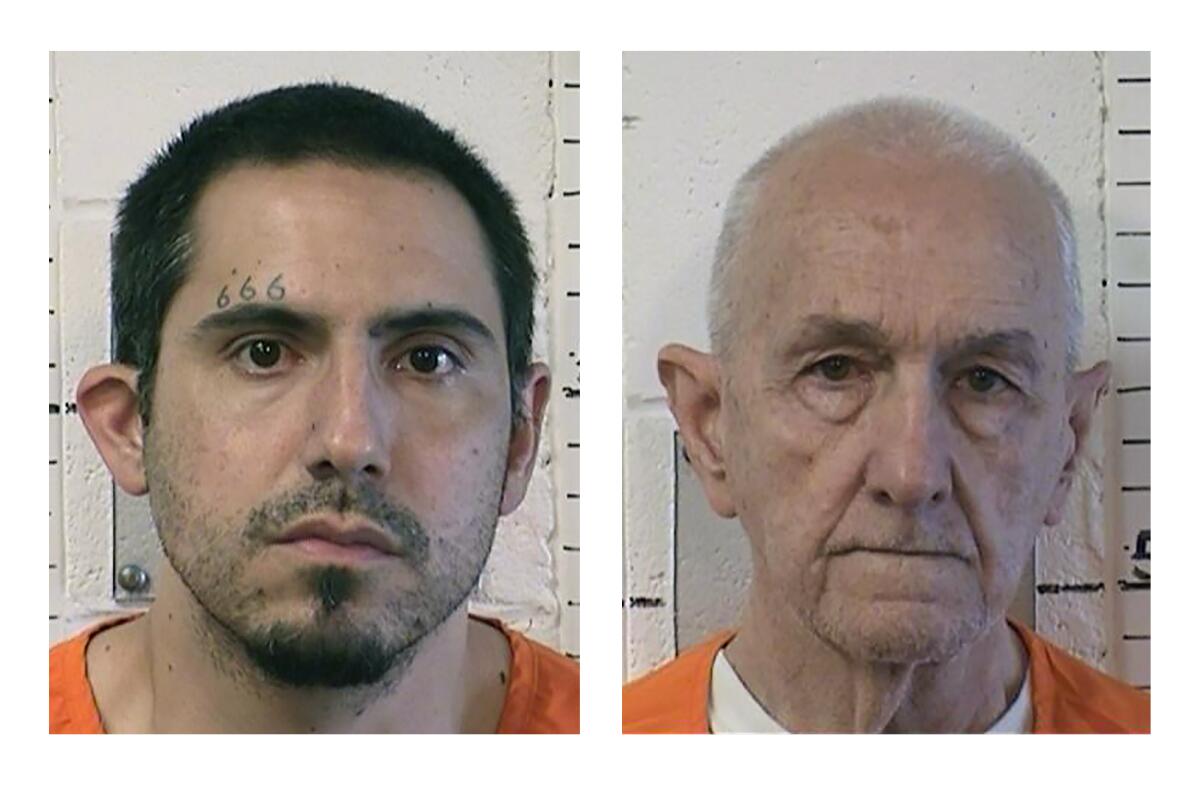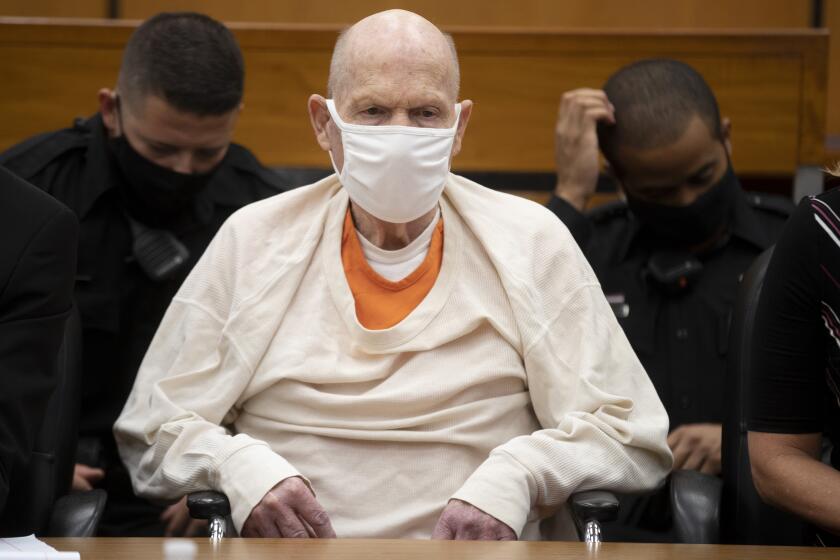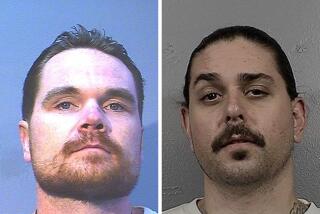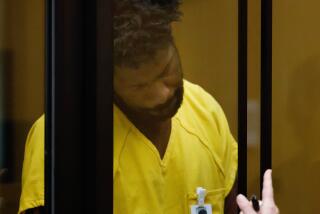Man accused of strangling ‘I-5 Strangler’ won’t face death penalty

- Share via
SACRAMENTO — The man accused of strangling the California serial killer known as the I-5 Strangler won’t face the death penalty, a prosecutor said Wednesday.
Amador County Dist. Atty. Todd Riebe said he had filed first-degree murder charges against Jason Budrow and would seek a sentence of life in prison without possibility of parole, the Sacramento Bee reported.
Budrow, 40, is accused of strangling Roger Reece Kibbe, whose body was discovered Feb. 28 in their shared cell at Mule Creek State Prison southeast of Sacramento.
Budrow already is serving life without parole for strangling his then-girlfriend in 2011 in Riverside County.
Death penalty cases are costly and lengthy affairs that include automatic appeals. California hasn’t executed anyone since 2006, and Gov. Gavin Newsom has issued a moratorium on capital punishment while he is in office.
Kibbe, 81, was initially convicted in 1991 of strangling Darcine Frackenpohl, a 17-year-old who had run away from her home in Seattle. Her body was found west of South Lake Tahoe below Echo Summit in September 1987.
Subscriber exclusive: Of the many mysteries that surround the Golden State Killer, one of the most consequential is exactly how authorities caught Joseph James DeAngelo Jr. four decades after his murders began.
Investigators said then that they suspected him in other similar slayings.
But it wasn’t until 2009 that a San Joaquin County district attorney’s office investigator used new developments in DNA evidence to connect him to additional slayings in Northern California counties.
Kibbe pleaded guilty to six additional killings in exchange for prosecutors not seeking the death penalty.
Those victims were Lou Ellen Burleigh, 21, killed in 1977; and Stephanie Brown, 19; Lora Heedrick, 20; Katherine Kelly Quinones, 25; Charmaine Sabrah, 26; and Barbara Ann Scott, 29, all killed in 1986.
Gov. Newsom’s deliberations on choosing a new attorney general underscore the sea change when it comes to capital punishment
Kibbe was serving multiple life terms without possibility of parole when he was killed.
In a letter to the Mercury News last month, Budrow said he killed Kibbe on the same day they became cellmates, initially so he would have a cell to himself.
“What had started out as my original bare-bones plan of doing a straightforward homicide of a cellmate to obtain my single-cell status evolved into a mission for avenging that youngest girl and all of Roger Kibbe’s other victims,” he wrote.
More to Read
Sign up for Essential California
The most important California stories and recommendations in your inbox every morning.
You may occasionally receive promotional content from the Los Angeles Times.












